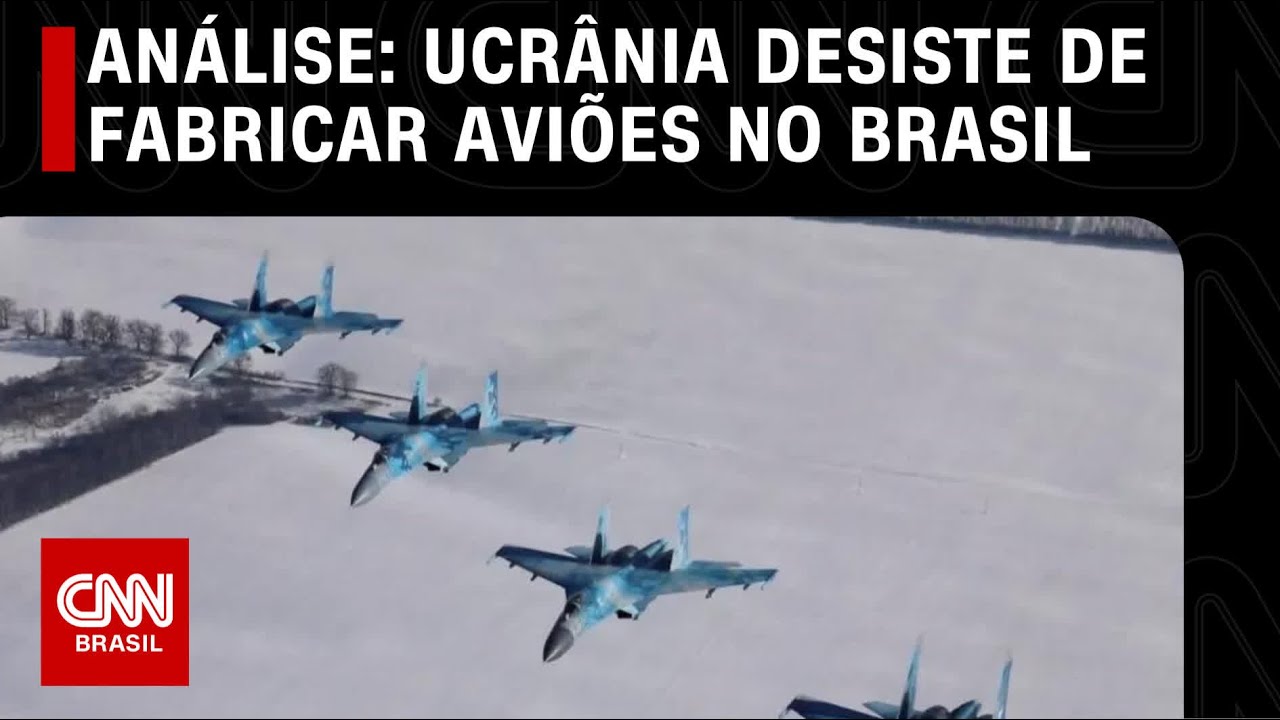Análise: Ucrânia Suspende Diálogo Para Fabricar Aviões No Brasil | Ww
Unleash Your Creative Genius with MuseMind: Your AI-Powered Content Creation Copilot. Try now! 🚀
The Ukrainian state aviation company Antonov has recently announced the suspension of negotiations to manufacture aircraft in Brazil. This decision came in response to controversial statements made by former Brazilian President Luiz Inacio Lula da Silva regarding the war in Ukraine. The potential partnership between the two countries was expected to bring in a whopping $50 billion in investments and create around 10,000 direct and indirect jobs.
Antonov, renowned for its production of large aircraft such as the An-225 Mriya, the largest aircraft in the world until 2022, was seeking alternatives outside of Europe due to the ongoing conflict in Ukraine. Brazil, known for its neutrality in global conflicts, seemed like a suitable country for the aviation company to establish its presence. However, President Lula's inflammatory comments regarding the conflict changed the game.
Representatives of Antonov in Brazil viewed Lula's statements as an endorsement of Russia's position in the conflict, leading them to question whether they would be warmly received in the country. Consequently, the company decided to halt all negotiations with Brazil. The ambitious business plan included the construction of a 70,000 square meter industrial plant in São Paulo, technology transfer, and the establishment of a test runway spanning almost 2.5 kilometers. The news of the suspension was officially relayed to the government of São Paulo last week.
While Antonov awaits the official interest of the Paulista and Federal governments through a document that will clarify the possibilities of bilateral cooperation, the aviation company has expressed its desire to avoid any misunderstandings and ensure a favorable reception in Brazil. The decision to suspend negotiations reflects the company's concerns about the sensitivity of the situation, as well as its hesitation to invest in a country that has recently taken positions that align with Russian interests.
The Ukrainian aviation company's decision to explore alternatives stems from its wariness of the ongoing conflict in Ukraine and its uncertainty about the future of its operations in the country. Antonov, a state-owned company that originated from the Soviet Union, currently operates multiple plants in Ukraine. However, the company has expressed fears that if the conflict escalates further, its industrial facilities could become targets of Russian aggression. As a result, Antonov has been actively seeking other markets where it can establish new industrial plants.
The political context surrounding the potential Brazilian partnership raises questions about the feasibility of the aircraft production plan. Was Brazil genuinely an attractive option, or was this an opportunity for the aviation company to send a strong message? Perhaps it was a combination of both. Brazil, with its historical reputation for neutrality and its robust industrial capabilities, appeared to have the necessary conditions for the plan to succeed. Nevertheless, President Lula's clear sympathies towards Russia have cast doubt on the country's suitability as an investment destination.
It is essential to consider the complex dynamics of the ongoing conflict in Ukraine to understand the potential implications for the proposed partnership. The Ukrainians' current military operations and their intended future actions are highly contingent on the developments in the battlefield. The Institute for the Study of War in Washington provides valuable insights into the Russian order of battle, indicating which units are being deployed in specific areas along the front line.
The battle in Hantski, for example, serves as a critical theater for Russian forces, with significant troop deployments and potential challenges in coordination due to decentralization. The Russians face difficulties in maintaining a unified command structure and face moral and logistical challenges. The presence of Russian fortifications approximately 20 kilometers behind the front line further highlights their defensive disposition.
Understanding the Russian strategy is crucial in predicting the future actions of Ukrainian forces. The overarching objective for Russia appears to be the destabilization and eventual collapse of Ukraine. While the initial objective of occupying Crimea failed, Russia aims to weaken Ukraine economically and politically. In light of this, Ukraine will likely seek to reclaim as much territory as possible to undermine Russia's capacity to inflict damage and make Ukraine economically unviable.
The suspension of negotiations between Antonov and Brazil is a missed opportunity for both parties. Brazil loses out on significant investments and job creation, while Antonov must continue its search for an ideal market to establish its industrial plant. The geopolitical landscape and the sensitivities surrounding the conflict in Ukraine have complicated the prospects for this partnership. Only time will tell if Antonov can find a country that aligns with its strategic objectives while providing a stable and welcoming environment for its investments.

Related Recaps
- *LIVE* | Los Angeles Lakers Vs Phoenix Suns Play By Play & Reaction
- Karn Sangini| Season 1 | Episode 61- Part 2
- Scam losses: Who should bear the responsibility? | Heart of the Matter podcast
- Ruling Georgian Dream Party withdraws controversial Foreign Agents Bill after mass protests
- Thân khoan 13mm 3 chức năng MAKITA ▪︎ DEWALT Giá Giảm Sâu | LH 0982.826.628